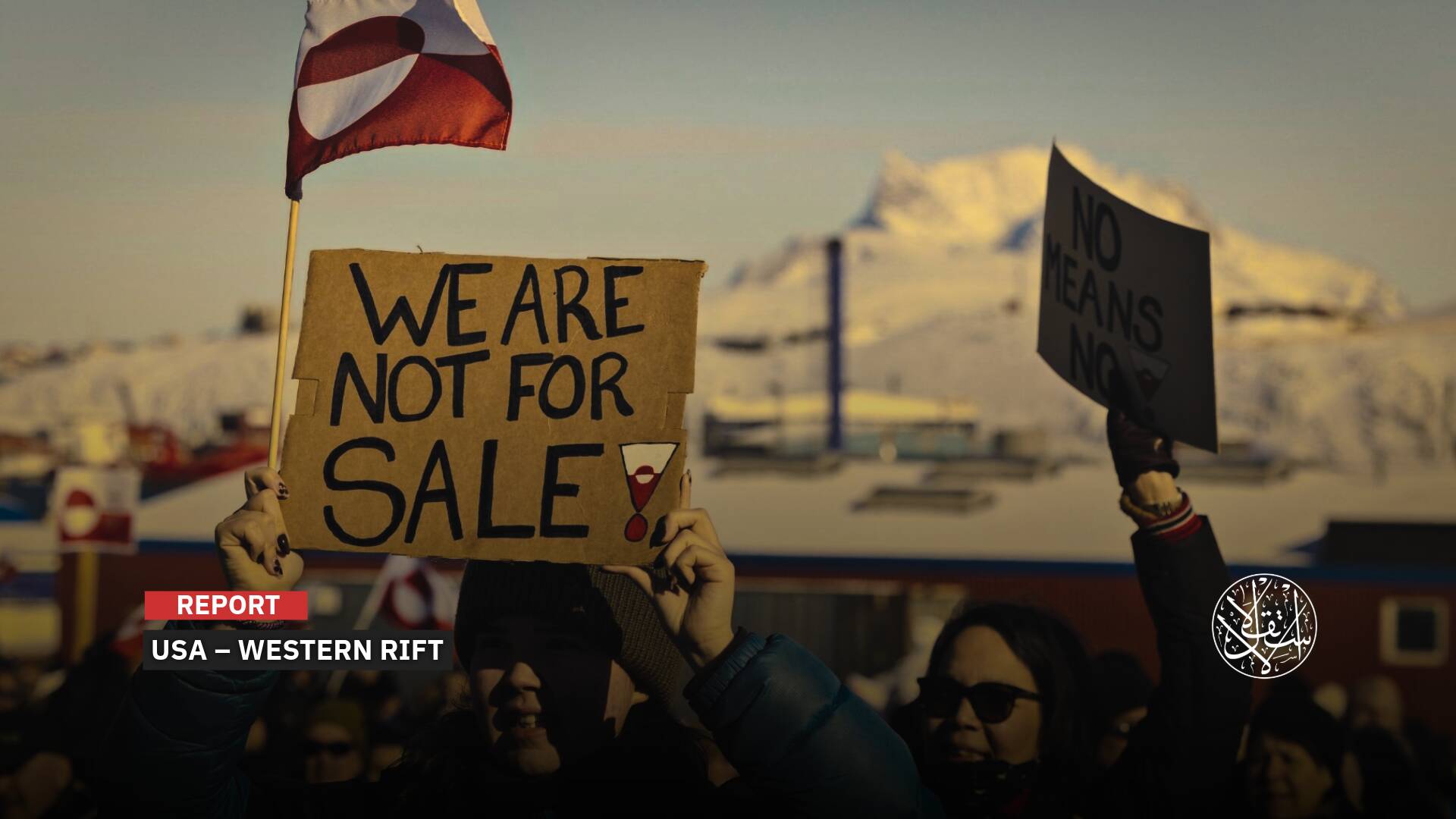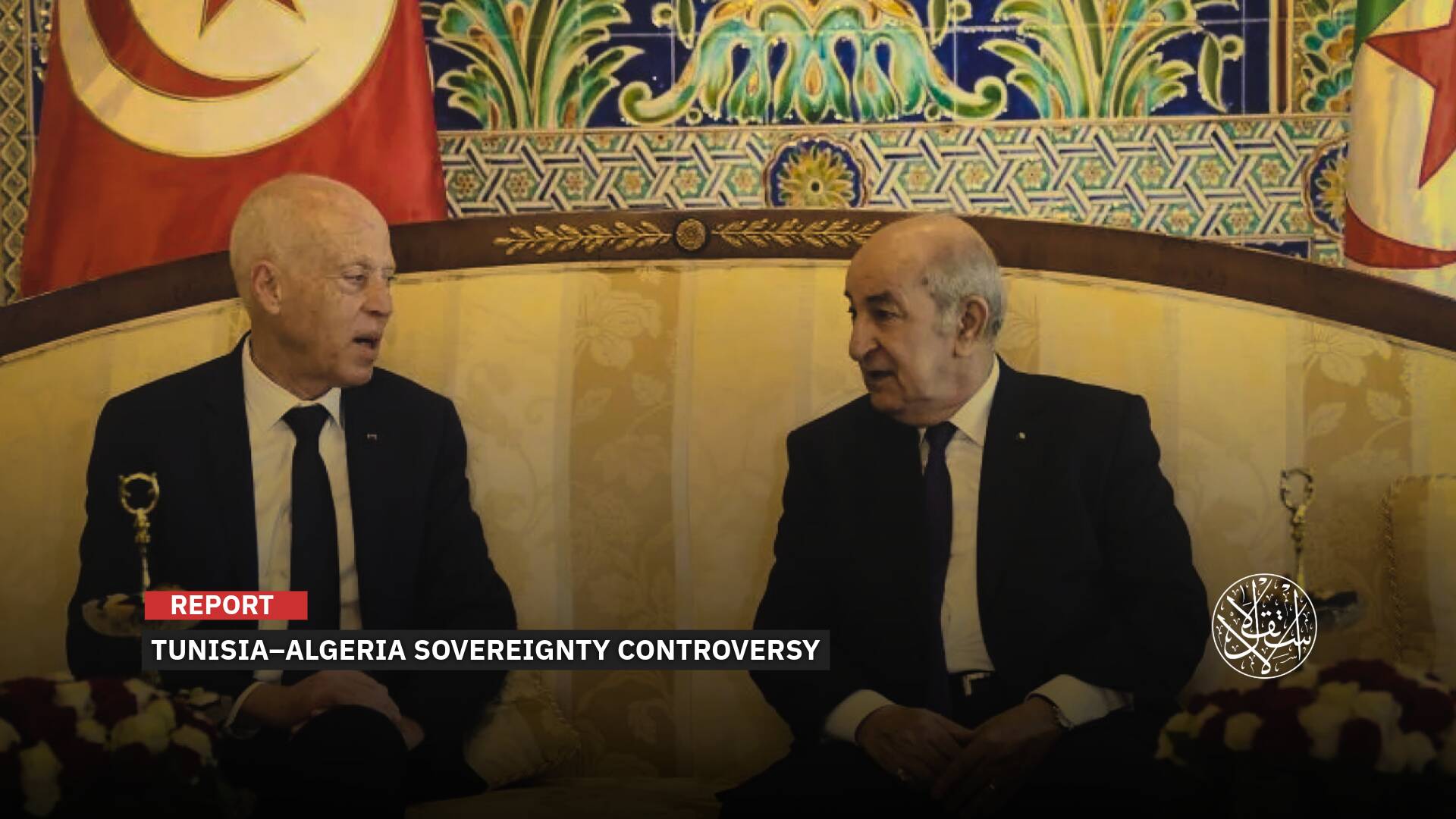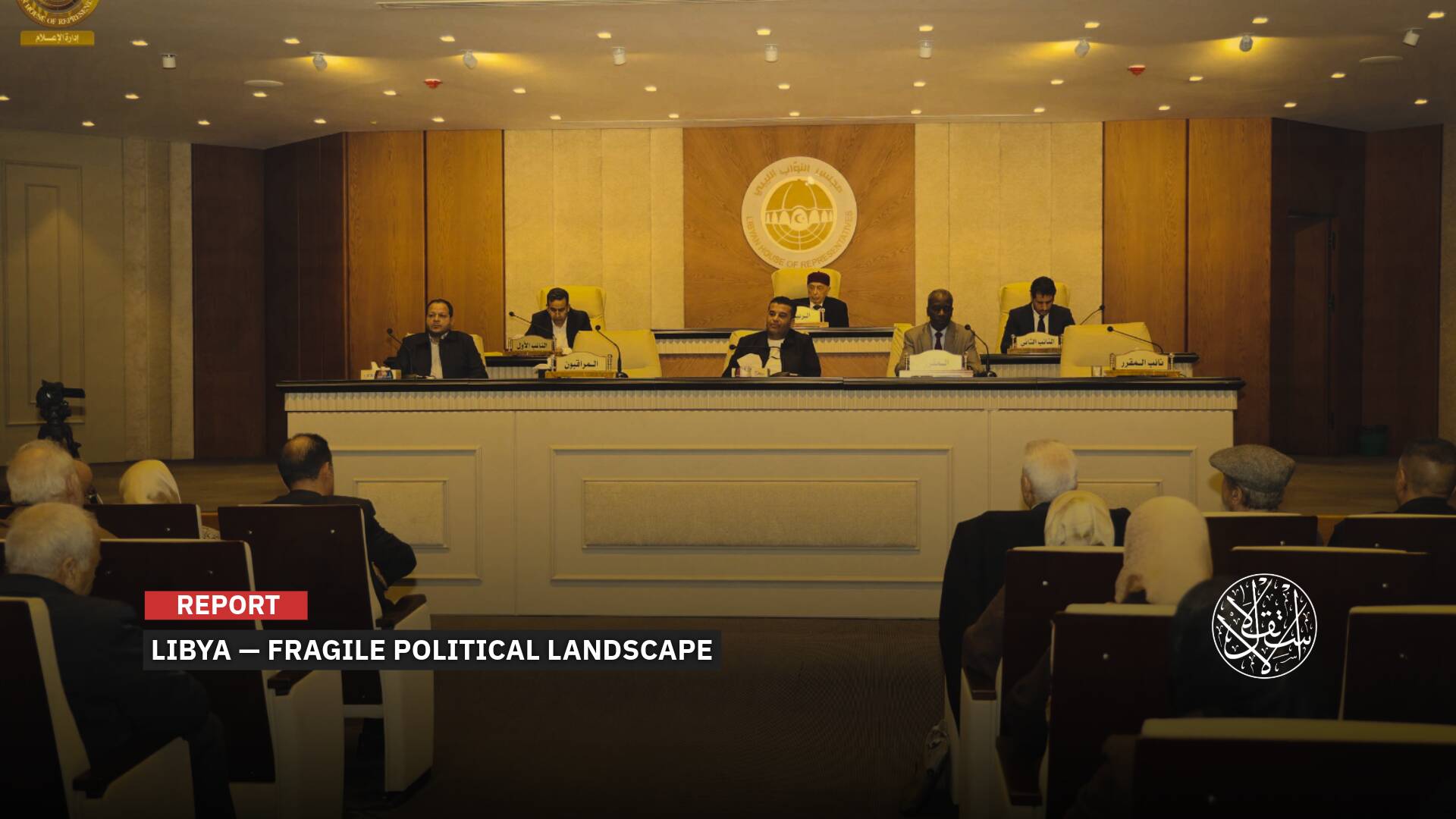After the Rise of the Right in the Israeli Occupation: Is the Two-State Solution Gone Forever?
.png)
In a recent article for Foreign Affairs, Nathan Brown, a professor at George Washington University, argued that the two-state solution for the Israeli–Palestinian “conflict” is no longer viable after years of political shifts and events, especially the rise of the Israeli right.
Brown said that the narrow victory of Prime Minister Benjamin Netanyahu and his far-right allies in “Israel” had dashed any hopes of a peaceful partition of the land, and that his new government openly advocated for a “Greater Israel” that would legally favor Jews over Palestinians and other minorities.
As a result, Brown said, the world must confront the reality of one state with deep divisions and inequalities.

De Facto Situation
The new Israeli government, led by a radical coalition, has exposed the truth that many have long denied: the Palestinian territories are not temporarily occupied, but permanently annexed by a state that rules over one group of people at the expense of another.
The two-state solution, which seemed plausible in the aftermath of the 1993 Oslo Accords, according to Brown, when there were moderate factions on both sides and some progress toward building a Palestinian state, has become a distant fantasy.
Today, it is futile to pretend that a different future is possible while ignoring the entrenched reality on the ground. It is time to face the implications of the one-state situation for policy and diplomacy.
The Israeli Occupation is not a democracy that happens to control Palestinian lands; it is a single state that spans the land west of the Jordan River, where different groups of people are subject to different legal systems and Palestinians are treated as second-class citizens.
Policymakers and analysts who overlook this one-state situation will be irrelevant and ineffective, as they only help to reinforce the status quo.
Nathan says that the world will not stop caring about Palestinian rights, no matter how much the supporters of “Israel” (and some Arab leaders) wish it would.
The past year has seen an escalation of violence, displacement, and human rights violations, and the risk of a widespread conflict grows with each day that Palestinians are trapped in this system of increasing Israeli legal oppression and encroachment.
What is less clear, however, is how, or whether, key actors will adapt to the one-state situation that is no longer a secret, but a fact.

Status Quo
Brown says that in the land between the Mediterranean Sea and the Jordan River, millions of people live under the control of one country that dictates their movement, security, laws, and policies without their consent.
This is the reality of a single state that favors Jewish supremacy, enabled by the United States, which has largely ignored the issue beyond managing crises and expressing displeasure.
President Biden has shown no sign of departing from this status quo, despite a gathering storm in “Israel” and Palestine that threatens to destabilize the Middle East and challenge his broader global agenda.
Some U.S. officials still cling to the hope of reviving the two-state negotiations after Prime Minister Benjamin Netanyahu’s precarious government falls, but that option is increasingly unrealistic and irrelevant.
The United States cannot afford to keep excluding “Israel” from the norms and structures of the liberal international order that Washington hopes to lead. It must face the new reality and act accordingly.
Jewish Non-Democracy
“Israel” has long faced a dilemma: whether to preserve its Jewish identity or uphold its liberal democracy. It has opted for the former, creating a system of Jewish supremacy that denies or discriminates against non-Jews in varying degrees, depending on where they live.
Some non-Jews, mostly Palestinians who became “Israeli citizens” before 1967, have political and civil rights but face legal and social barriers.
Others, mainly Palestinians in Jerusalem (al-Quds), can apply for “citizenship,” but most reject it as a sign of betrayal. The majority of Palestinians, who live under Israeli Occupation in the West Bank and Gaza, have the fewest rights and freedoms of all.
The Israeli Occupation justifies this unequal arrangement by claiming that it preserves the possibility of a two-state solution, which would grant Palestinians their own state
But by avoiding formal annexation of the occupied territories, “Israel” also avoids accountability for the millions of people who live there without full “citizenship.”
This allows many of its supporters abroad to ignore the reality on the ground and to cling to the illusion that “Israel” is still a liberal democracy.
But this status quo is unsustainable and unjust. It erodes the legitimacy and security of the Israeli Occupation and denies Palestinians their right to self-determination.
The only viable alternative is a one-state solution that guarantees equal rights and representation for all people living in historic Palestine, regardless of their ethnicity or religion. Such a solution is not on the table now, but it is the only way to end the conflict and uphold the values of democracy and human rights.

Diplomacy Fail
Israeli Jews are not united on the nature of their state, the role of religion in politics, and many other issues, including the rights of sexual minorities.
Many liberal Israeli Jews protested against the Netanyahu government’s assault on democracy and the judiciary, but they largely ignored the Palestinian issue, reflecting how the peace process has faded from the agenda.
The result is a lack of leadership on both sides. Some politicians want to maintain the status quo, not out of any strategic vision, but out of incompetence and inertia. Others want to change things radically, in opposite directions.
That was the case with former President Donald Trump, who promised to end the conflict with a “deal of the century” that effectively erased the rights and national aspirations of the Palestinians.
It is also the case with some Jews who push for formal annexation of the occupied territories and some Palestinians who advocate new forms of resistance to Israeli rule. But all these efforts face entrenched structures of power and interests that preserve the current impasse.
According to Brown, under these circumstances, any diplomacy that aims to resolve the conflict in a fair way is likely to fail, because it misunderstands the possible alternatives and the willingness of all parties to pursue them.









